Please stop calling it a “4 month sleep REGRESSION”
I have been meaning to write this blog for some time now, and so here it finally is.
Your newborn baby was sleeping like a champ, or maybe he wasn’t. It used to be easy to get your newborn to sleep by bouncing on that yoga ball, but now the second you put her down she wakes and starts to cry again… so you head to Google and you see countless reports of THE 4 MONTH SLEEP REGRESSION. Aha! This must be the reason, you mumble to yourself as you sip your cold cup of coffee that you forgot you made this morning. You go ahead to seek further advice from the plethora of parenting groups on Facebook, that gives you wildly contradicting viewpoints and advice.
Is it a phase? Will my baby outgrow this? Do I just ride it out? Afterall, it’s called a regression right?
LET’S CHANGE THE DIALOGUE.
A regression implies that we are going backwards, when in fact the opposite is happening in your baby’s brain. It is a developmental milestone that happens around 16 weeks of age, and it’s a good thing 😊
There is a change in sleep patterns now. Your baby’s brain reaches the next level of maturation where circadian and biological rhythms emerge . Newborns and young infants enter sleep with a period of REM sleep, however around 16 weeks their cycles change into more “adult like” patterns and they begin to enter sleep with a non-REM sleep period. It’s all biological .
1-Your baby’s awareness and curiosity in the world around her is much greater now. He can make strong associations and is a more social being. They start to develop sleep associations and sleep crutches to what you do / have been doing to get them to sleep… (ps- they are catching on to that Yoga ball routine !)
2- Your baby is less portable now and will not sleep as easily or as well on the go as they will in a proper sleep environment. This often leads to a sleep deficit from fragmented and non- restorative day sleep. When overtired, a baby will have a harder time falling asleep as well as staying asleep. This is often the cause of more frequent night wakings and early risings.
3- Your baby is ready to learn to self soothe and become an independent sleeper who is able to put themselves to and back to sleep without parental intervention. When you are ready, you can now select a sleep training method that fits in to your values and parenting style and allow your baby to hone their natural ability to independently fall asleep.
4- Synchronize your baby’s sleep with their own biological rhythms. In the newborn phase, you were watching for sleepy cues and tired signs to put your baby to nap or bedtime. With these biological changes, they are more ready to be put down “by the clock” at those times that follow their natural sleep and wake cycles.
So there you have it moms and dads… let’s start calling it the 4 month SLEEP PROGRESSION… pass it on!







Leave a Reply